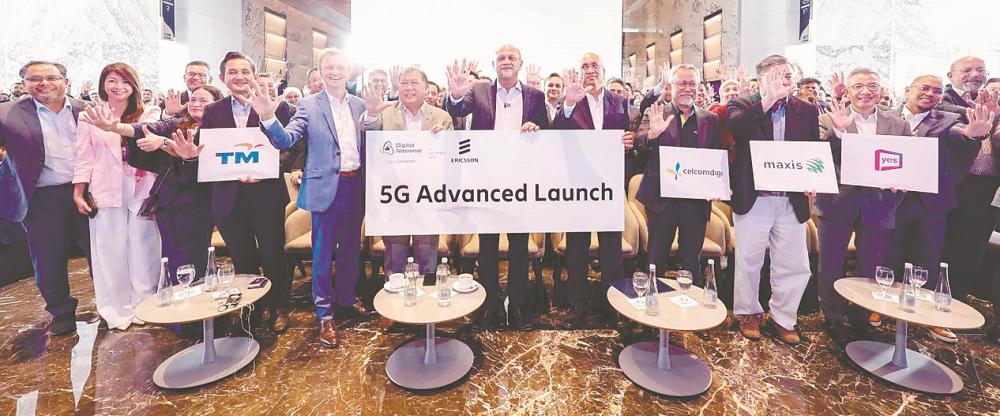KUALA LUMPUR: Malaysia’s newly formed National AI Office (NAIO) is ramping up efforts to integrate artificial intelligence (AI) into transport, healthcare, agriculture, small and medium enterprises, and government digital services.
Digital Minister Gobind Singh Deo said ministries overseeing these sectors are establishing “centres of excellence”, led by government officials, to identify challenges and implement AI-driven solutions. “This structured approach is expected to streamline AI adoption and innovation across critical industries.”
He disclosed that the government is reviewing its GovTech Policy, which was originally introduced in March 2020.
“Given the rapid advancements in AI and emerging technologies, policymakers are working to update the framework to ensure it remains relevant and effective. The review is expected to be completed within the next two to three weeks, with a targeted relaunch in Q1 2025,“ Gobind told reporters at the launch of Future Connected: 5G Advance at The Exchange 106 today.
At the event, Digital Nasional Bhd (DNB), in partnership with Ericsson, introduced 5G Advance, a next-generation connectivity technology that integrates ultra-low latency and AI, marking a significant step in the country’s digital transformation.
“This advancement is expected to accelerate automation, enhance efficiency, and provide real-time AI-driven solutions for various industries, including transport, healthcare, agriculture, and small businesses,“ said Gobind.
He noted that, unlike conventional 5G systems relying on manual configurations and expert feedback, 5G Advance leverages AI to analyse industry-specific needs autonomously.
“This allows businesses to implement tailored, intelligent network solutions more quickly, reducing setup time and improving overall connectivity. As industries evolve, AI will continuously optimise network performance to ensure seamless scalability.”
Gobind said another key area under government scrutiny is the potential impact of DeepSeek technology, an innovative and cost-effective solution for data management and energy efficiency.
“While some nations have raised concerns over data security and compliance, Malaysia sees this as an opportunity to enhance its position as a regional data hub. We are currently studying how the country can leverage new technological advancements while maintaining regulatory standards,“ he added.
The minister said the rise of AI and next-generation connectivity is expected to benefit Malaysia’s SMEs and MSMEs, which form a critical part of the economy.
“With 5G Advance, small businesses can leverage AI-driven tools to enhance productivity, improve customer experiences, and optimise logistics. This initiative aligns with the government’s vision to drive digital inclusivity and economic growth through technology.”
As digital infrastructure rapidly evolves, Gobind said, Malaysia is focused on ensuring that its policies and regulations support emerging innovations.
“The Digital and Communications ministries are working closely with stakeholders to ensure AI and 5G Advance integration align with industry needs and global standards. This proactive approach aims to position Malaysia as a leader in digital transformation within Southeast Asia.”
With 5G Advance, AI-powered solutions, and digital policy reforms, he added, Malaysia is set to accelerate its transition into a high-tech economy.
“These initiatives will strengthen connectivity, improve industrial efficiency, and drive economic competitiveness, solidifying the nation’s role as a hub for technological innovation in the region,“ said Gobind.









